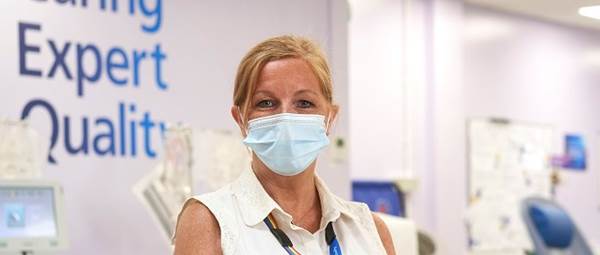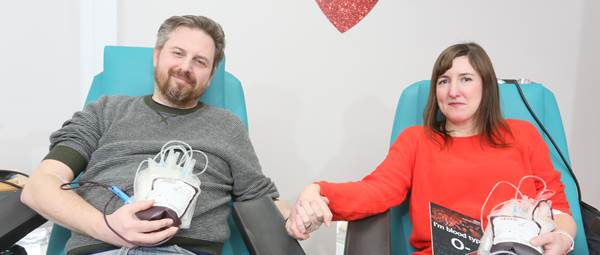Making your donation safe
Follow these tips to make sure your donation runs as smoothly as possible.
Although national COVID-19 restrictions have been lifted, we have kept a few changes in place to make donating as safe as possible for everyone.
Once you arrive, we will ask you some questions to understand whether you are well. You will be asked to have your temperature checked from your forehead and there will be alcohol hand gel for you to use.
Before attending your appointment:
Check you are ok to attend - Read the coronavirus health rules for donors
COVID-19 vaccine – please wait 7 full days from your vaccine before donating on the 8th day. If you had side effects from the vaccine such as headache, temperature, aches and chills, please wait 28 days from your recovery. Find out more about donating after a vaccine.
Check you can give blood - You can use our interactive questions which cover the most common reasons donors are unable to donate when they attend their appointment. Although most people can donate, there are some restrictions - depending on things like your health, medication, and whether you've been abroad recently.
If you have any specific queries about your eligibility to give blood you can search our health and eligibility or travel sections for advice or call us on 0300 123 23 23.
Wear a fabric face covering – unless you're medically exempt, this must cover your mouth and nose - get more information about face masks
Attend alone – as part of latest safety changes it is vitally important that you come on your own, to help minimise social contact.
Eat - Don’t make the mistake of going to donate on an empty stomach, so make sure you’ve had something to eat before your appointment. This will help to keep your blood sugar levels stable, so you don’t feel lightheaded or dizzy after your donation. Ditch the fatty foods, like burgers and fries. You want to make sure your diet contains foods rich in iron - such as green leafy vegetables, so you feel well during and after your donation.
Stay hydrated - Drinking around 500ml of water before you donate will help your body replenish the fluids you lose and prevent your blood pressure from dropping, which can make you feel light headed or dizzy. It is essential to avoid alcohol before and after donating as this may affect hydration levels and delay recovery.
Avoid vigorous exercise the day of your donation – both before and after you’ve given blood.
We’ve got our own exercise to help stop you from feeling faint. It’s called ‘applied muscle tension or ‘AMT’ which involves tensing and relaxing the body’s major muscles during the donation process. This includes crossing and uncrossing your legs and clenching and unclenching your legs and bum.
Wear clothing with loose sleeves - We will need to roll up your sleeve past your elbow when you give blood – to allow easy access to your veins.
Get seven to nine hours of sleep - We recommend that you get a good night’s sleep before your donation. This will help you to feel more alert when you give blood, which will in turn reduce the risk of feeling unwell.
Keep your appointment and arrive on time – please reschedule it if you can't come by calling us on 0300 123 23 23
We are regularly reviewing all safety measures and may make more changes in the future to keep you and our staff safe.
Please continue to donate.



